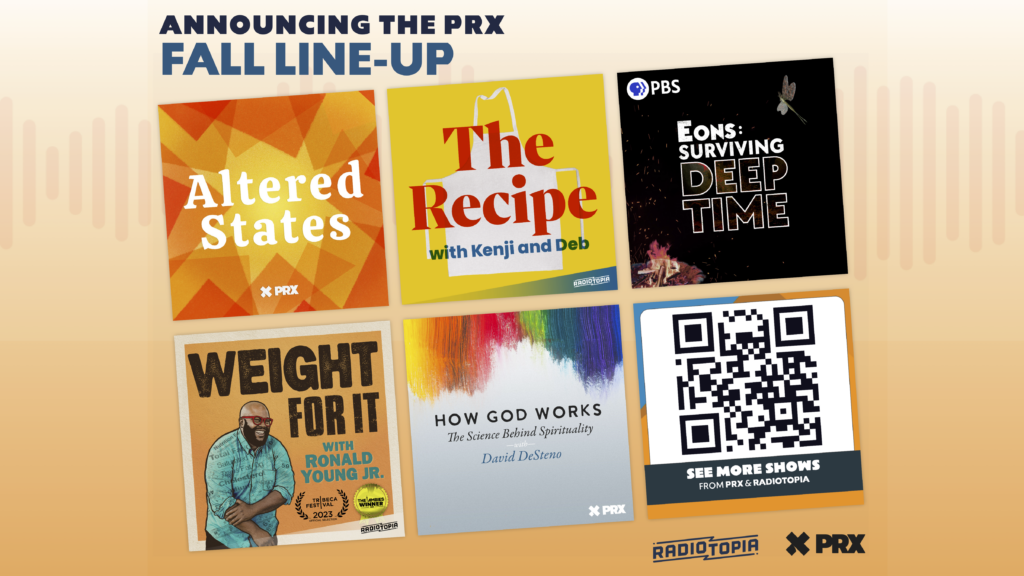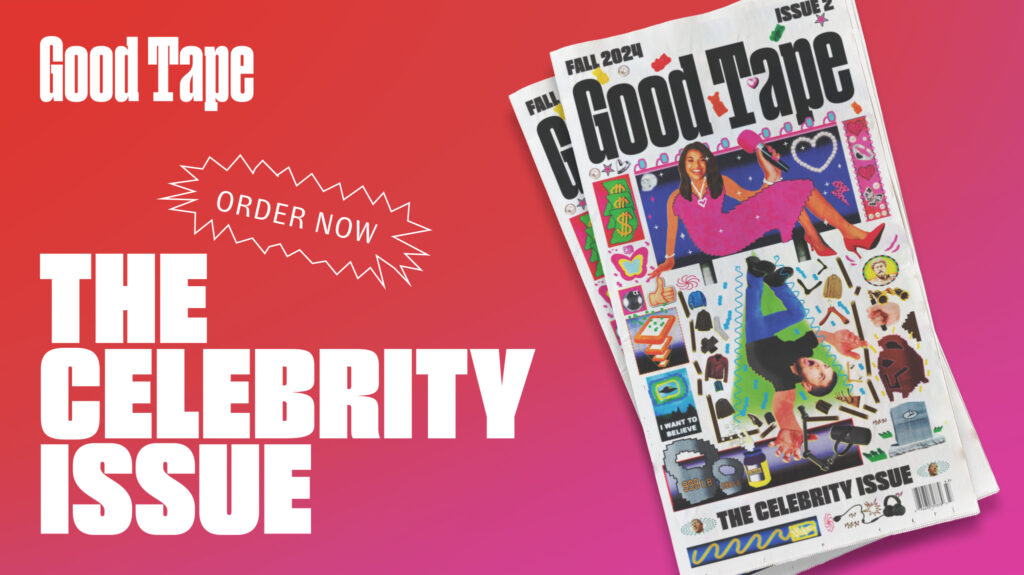Podcast Masculinity
Years ago, in a Los Angeles bar that no longer exists, I overheard a certain dialogue that has been ringing in my head ever since. What I noticed at first was a tone: the pitched enthusiasm of one guy communing with another guy about their thing, whether that be Jeeps or hockey or vaccine denialism or Christopher Nolan films. They were white, in their late 20s or early 30s, and, I assumed, the best of friends. I perked up at the word “commonsensical,” not just because it struck my ear oddly, but because it clued me into the context of their chatter; they were praising the intellect of someone they had heard interviewed on a podcast. Then my worst suspicions were confirmed. The genius they admired was Canadian psychologist Jordan Peterson, and his interlocutor was our century’s ultimate renaissance man, Joe Rogan.
This would have been late 2016 or early 2017, a time when American history was spinning wildly about its axis. The ascendant Donald Trump had given a grotesque new voice to white male grievance in his unmodulated racism and misogyny. I, also a white male, was, for the first time in adulthood, sleeping on a mattress without a bedframe, scraping together freelance writing assignments in between working retail shifts for a meager hourly wage. From the outside, you might have thought I needed some guidance in the form of tough paternal love or a motivational speech, though I have never shown any talent when it comes to taking advice.
These men at the bar seemed to take a different view, rhapsodizing about how Peterson’s philosophy could inform, change, or simply articulate their worldview. Though Peterson would not publish his wretched self-help bestseller, “12 Rules for Life: An Antidote to Chaos,” until 2018, he made his first appearance on “The Joe Rogan Experience” in the pivotal election month of November 2016, which gave him a huge new platform that helped to launch his dark-enlightenment celebrity outside of academia and clinical practice. By that point, “Joe Rogan” was big enough—around 1 million YouTube subscribers—to serve as a “Jeopardy!” answer. Peterson had been invited onto the show after making headlines with his obstinate refusal, as a University of Toronto professor, to use his students’ preferred pronouns, and for his corresponding attacks on “political correctness.” (A later Peterson episode of “Joe Rogan,” released in 2018, went on to become one of the top 10 most-watched of the series on YouTube, with 39.5 million views to date.)
It was one thing for the dudes I eavesdropped on to agree that an unprofessional tantrum constituted the height of logic and reason, but they astonished me by explaining to the bartender that they’d met only yesterday, when one had been the other’s Uber driver. As I came to understand in my years writing for the progressive men’s magazine, MEL, during the #MeToo era and the mainstreaming of misogynist Gamergate and “incel” worldviews, community is key in any impressionable man’s decision to let a toxic male podcaster colonize his mind. You subscribe to join a band of brothers, with their dedicated Reddit forums and raucous Discord chats, inside jokes, and competing analyses of given episodes (not to mention the actual hosts). The “Joe Rogan” podcast’s YouTube handle is “PowerfulJRE,” carrying the implicit promise that devoted listeners will, together, unlock their own potency.
Whether you prefer the stoner UFO speculation and ringside MMA riffs from Rogan, who described the origin of his series as “sitting in front of laptops bullshitting” (he’s now considered the most popular and highest-paid podcaster on the planet, with tens of millions of mostly male followers across Spotify and other platforms, and billions of lifetime downloads; approximately 90% of his guests are men); the frequently weepy and always pretentious pique of Peterson (his imaginatively titled “The Jordan B. Peterson Podcast” claims around 1 million listens per episode); the hippie-filtered conspiracy theorizing of alleged sex offender Russell Brand (almost 2 million followers for his show “Stay Free” on the right-wing streaming platform Rumble); the alpha-masculine camp of alleged sex-trafficker Andrew Tate (“Tate Speech” boasts more than 2 million Rumble subscribers); or the dubious pop science of Stanford-accredited ladies’ man Andrew Huberman (“Huberman Lab” is currently at number 14 on Spotify’s podcast charts, while Huberman has close to 6 million YouTube subscribers), you get a whole crop of boys listening alongside you, digesting the material, and adjusting their lifestyles to match the worldview.
These fandoms are loud and proud in their proselytizing, their strength compounded by recommendation algorithms that make one influencer a gateway to the next, ensuring plenty of cross-pollination and increasingly extreme prescriptive ideas. In April, the Dublin-based firm Research and Markets released an analysis finding that “social media and online communities are playing an increasingly important role in men’s health and wellness,” a $1.27 trillion industry it expects to swell to a value of $2.57 trillion in the next five years. Podcasts, long a male-dominated medium in which the gender gap has only recently started to close, exploit men’s competitive appetites for supposed methods of physical and mental self-improvement. Teachers know when their male middle-schoolers are being radicalized by Tate and his young streamer disciples, and the men developing lifestyle protocols based on the “Huberman Lab” podcast are known, in their specific mania, as “Huberman Husbands.”
In cult documentaries, there’s an obligation to point out that “it could happen to anybody,” that no person is totally immune to the coercive power of a collective as it aligns with the mesmerism of a Svengali. I’m not sure that’s quite right. The former group members and filmmakers tend to mean that “even smart people” get brainwashed, but the fact is that different vulnerabilities, like emotional isolation, unresolved trauma, and an appetite for answers that seem like hidden, sometimes forbidden knowledge, play an essential role in recruitment.
That last element, the quest for a more profound truth, is particularly noticeable in bros who submit to male voices of authority beamed into their AirPods. Once on board with a strain of contrarian provocation, they have an incredible knack for absorbing the material uncritically, deeming the host’s conclusions to be precisely reasoned and logical when they are, on the contrary, deeply subjective and relativistic. This makes the “debate” that the podcast-poisoned man often requests all but impossible, since he has no argument beyond having heard something from a person he considers necessarily correct. On a June episode of Peterson’s podcast in which he and a guest discuss “where the instinctive feminine ethos goes wrong,” a top YouTube comment reads, verbatim, “I am so, so thankful that my 28 year old daughter did not become a toxic feminist’s.” Commenting on a “Stay Free” stream from Brand about a conspiracy theory that the 2024 Paris Olympics ceremony was “Satanist”—Brand was recently baptized in the River Thames as part of a timely spiritual rebirth—a viewer replied: “Why is it Christianity they want to mock? It’s [because] they know we serve the one and only true God!”
The listener’s need to regurgitate what he’s learned, much of which he already took for granted, to ambivalent bystanders and fellow travelers alike reveals a fantasy at work: since he finds this stuff interesting, he himself will become interesting by channeling the message. It hardly occurs to him that those outside his bubble will be offended by the casual sexism and transphobia of his chosen idol, alarmed at the trutherism and political paranoia, or simply bored by the subjects of crypto, AI, and biohacking. Nor will it bother him that his proposals for improving oneself and society at large tend to lack nuance and context; they are reductive, one-size-fits-all ideas birthed from the minds of obnoxious entertainers performing as gurus.
At heart, whether he recognizes it or not, such a listener fancies himself a talker as well. If Rogan and his buddy sitting around “bullshitting” launched a content brand worth hundreds of millions of dollars, why shouldn’t his own misinformed discussions and tedious monologues have definite value? The very success these influencers have enjoyed in the manosphere is cause to imitate them. It felt, in a sense, like the guys I encountered at that bar were rehearsing or enacting their own podcast, dreaming of the day they could pontificate for hours on end to an audience that lapped it up.
Until then, of course, they are reliant on the father figures best able to flatter them as free-thinkers while seducing them with reactionary technobabble. Peterson, Tate, and Rogan have captured a chunk of the Y-chromosome population by warning the gender-insecure that everything from tofu to housework is making them weaker, more effeminate, gay. Meanwhile, Huberman has his devotees stoically plunging themselves into ice baths (some of the research he’s cited to justify this practice has since been retracted) and Brand, looking to gloss over the sex predator rap, has added MAGA vibes and a newfound Christian faith to his usual Gish gallop about the “elites” either orchestrating or covering up history-altering events.
Crucially, each positions himself as the antidote to mainstream establishments and movements, an intrepid guide who can wake you up, so long as you have the fortitude to face a new reality. That helps to explain the zeal of their converts, who desire nothing more than for the rest of us to have the same epiphanies they did. Armed with a sudden overconfidence, they set about seizing control of their lives according to the latest doctrine, a goal which can never be accomplished by half-measures, as the language here is made up of absolutes.
The worst part is they don’t really care if you tune them out; they have strength in numbers, an entire army. At the same time, they betray their fragile nature, and the resentful fear that drives them into the arms of charlatans: that nobody else takes them seriously.
![]()
POST-ELECTION UPDATE: Joe Rogan endorsed Trump, a man he had previously said he wouldn’t even interview, at the eleventh hour of the 2024 election, in a tweet promoting his latest interview with billionaire Trump surrogate Elon Musk.
He wasn’t the only brain-poisoned bro podcaster to back the convicted felon: others explored in this article—Russell Brand and Jordan Peterson (who, as a Canadian, could not vote for him)—made their support explicit earlier on. Following Trump’s victory, Andrew Tate proclaimed he would move back to the U.S., though it’s not clear how he could as a sex trafficking case proceeds against him in Romania.
Considering the feverish male audiences for these podcasts, it’s perhaps less than surprising that Trump won a second term. He made critical gains among Generation X, the age cohort to which Rogan, Brand, and Peterson all belong: Men aged 45 to 64 broke 60 percent in his favor. Although the collective influence that podcasters have over male Gen Z listeners is not altogether quantifiable, Trump also bested Harris in this demographic, taking 49 percent of men aged 18 to 29, compared to her 47 percent—a notable rightward shift for Zoomers.
The Trump campaign made a concerted effort, supposedly at the encouragement of 18-year-old son Barron Trump, to give interviews on podcasts and livestream channels with audiences that skew younger and male. Rogan himself welcomed Trump, running mate Sen. J.D. Vance, and billionaire Trump surrogate Elon Musk as guests on his show in quick succession as the campaign came to a close.
In the days after Trump’s victory, school campuses were reportedly besieged by a new chant from right-wing boys and young men celebrating women’s potential loss of reproductive rights: “Your body, my choice.” Nick Fuentes, a 26-year-old white nationalist podcaster, popularized the phrase on the Musk-owned X, formerly Twitter.
If, in 2016 and 2020, Trump attacked the legacy press as “fake news,” 2024 marked the turning point when he fully embraced alternative media that had already entrenched itself as mainstream: freewheeling conversations with friendly, credulous hosts, always male, who barely questioned his fitness to lead. Even as he canceled one high-profile appearance after another on TV shows like 60 Minutes and even a National Rifle Association event, the Republican nominee prioritized digital audio platforms. Despite one major interview on “Call Her Daddy,” a podcast popular with young women, to discuss protections for reproductive rights, Harris was less aggressive in the space, focusing instead on swing state travel and established TV shows like The View and Saturday Night Live. When it came to a potential Rogan interview, the podcaster and campaign reportedly could not agree on the terms of the conversation, with Rogan pushing for his standard three-hour runtime and the Harris camp asking for a shorter one.
Now Trump’s risky gamble—largely forgoing old mass media in favor of looser, informal internet channels and targeting twentysomething men known as low-propensity voters, those likelier to ignore the democratic process than participate—looks to have been the smarter play. When the dust settles, we may see just how effectively he leveraged toxic podcasts to turn them out. What’s more, he has probably reshaped U.S. electoral politics yet again, proving that his instinct for unpredictable and untraditional strategy is still sharp. As with so many aspects of Trump’s reign over the national consciousness, it’s hard to say whether anyone besides him could make it work, but make no mistake: in the years ahead, many will try.
![]()
Miles Klee is an LA-based staff writer at Rolling Stone as well as the author of a novel, “Ivyland,” and a story collection, “True False.” He also contributes to the newsletter collective Flaming Hydra.










